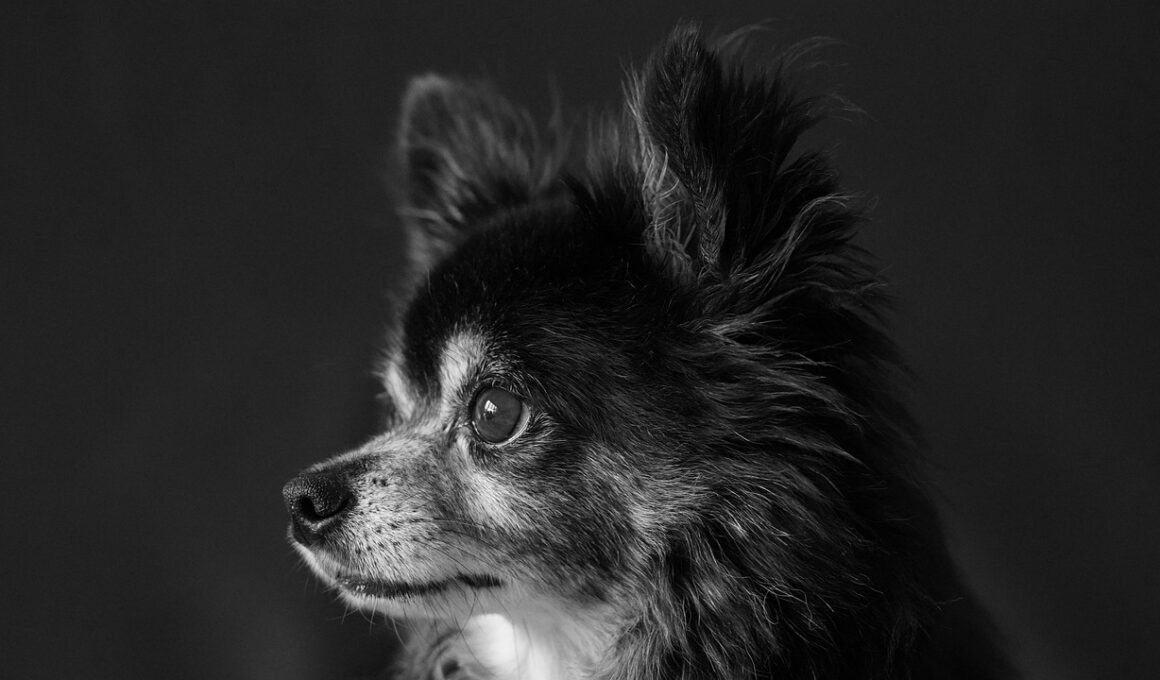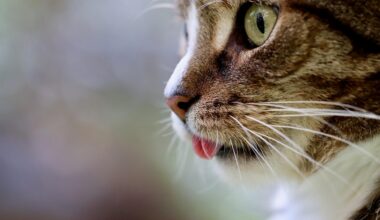Common Myths About Chihuahuas Debunked
Chihuahuas are often misunderstood, leading to a variety of myths surrounding these small dogs. One common belief is that Chihuahuas are solely lap dogs that require minimal exercise. In reality, while they enjoy snuggling, Chihuahuas are energetic and need regular walks and playtime to stay healthy. They’re robust little creatures with lively personalities that thrive on activity. Furthermore, owners often underestimate their intelligence. Contrary to the belief that Chihuahuas are not trainable, these dogs can learn commands and tricks, just like larger breeds. Consistent training sessions using positive reinforcement can yield impressive results. Additionally, many assume Chihuahuas are inherently aggressive due to their protective nature. It’s crucial to understand that aggression is not a trait of the breed; rather, it often stems from poor socialization. Early exposure to various environments and people can help Chihuahuas become well-adjusted companions. A critical part of owning a Chihuahua is to ensure proper socialization, which dispels much of the negativity surrounding this breed. Lastly, the idea that they don’t bond with their owners is false. Chihuahuas are affectionate and can develop strong attachments with their humans.
Another prevalent myth about Chihuahuas pertains to their health and life expectancy. Some people mistakenly believe that due to their small size, Chihuahuas are frail and have a short lifespan. However, with proper care, many Chihuahuas can live between 12 to 20 years, some even longer. A well-balanced diet, regular veterinary check-ups, and routine exercise contribute significantly to their longevity. It’s essential to keep them free from health issues common in small breeds, such as dental disease and knee problems. Another misconception is about Chihuahuas being difficult to care for, which leads some to think they should only be owned by experienced dog owners. This assertion is misleading; Chihuahuas can adapt well to various living situations. As long as owners educate themselves about their needs, Chihuahuas can thrive in homes of all kinds. However, their small stature means that precautions against injuries must be prioritized. Ensuring a safe environment where they feel comfortable is essential, especially when there are larger pets in the household. Emphasizing proper care leads to happier and healthier Chihuahuas, who can enrich the lives of their owners significantly.
The Myth of the Yappy Chihuahua
When people think about Chihuahuas, they often picture the stereotypical “yappy” dog. This stereotype is largely derived from media portrayals, reinforcing the misconception that all Chihuahuas are incessant barkers. In truth, the propensity to bark varies from one individual Chihuahua to another. Many Chihuahuas are surprisingly quiet and only bark when they feel threatened or when they want to alert their owners. Like any other breed, a dog’s behavior is influenced by genetics, upbringing, and socialization. A well-trained Chihuahua can be just as calm and appropriately disciplined as any other well-behaved dog. Training and socialization play significant roles in reducing unnecessary barking behaviors. Teaching them commands, utilizing positive reinforcement, and providing them with stimulating activities can help curb excessive barking. Furthermore, creating a calm atmosphere in their living space will aid in achieving a quieter pet. By understanding the reasons behind barking, Chihuahua owners can manage this natural instinct in their pets effectively. Ultimately, dismissing Chihuahuas as mere yappers overlooks their diverse personalities and charms.
Another common myth is that Chihuahuas do not get along with other pets, especially larger breeds. While it’s true that Chihuahuas have a robust and confident demeanor, many of them are sociable and enjoy the company of larger dogs. Proper introductions and early socialization can foster friendships regardless of size. It’s essential to supervise interactions and ensure that all pets feel secure during the meeting. Chihuahuas, just like any other breed, thrive when they grow up with other pets and learn to interact with them appropriately. Over time, consistent and peaceful interactions can help cement these relationships. Additionally, some people believe that Chihuahuas should only live in apartments. While their size makes them ideal for urban living, they can adapt to a variety of housing situations. As long as they receive enough physical and mental stimulation, Chihuahuas can thrive in both large homes and small spaces. Regular outdoor time allows them to explore and expend energy. In the end, the environment plays less of a role in their happiness than loving attention and engagement from their owners.
Chihuahuas and Temperament
Another widespread misconception suggests that Chihuahuas are temperamental and hard to handle. This perception often arises from instances of overly spirited Chihuahuas displaying more assertive behavior. However, it’s essential to recognize that temperament varies among individual dogs. Factors such as training, socialization, and environment shape their behavior significantly. A Chihuahua that grows up in a nurturing environment with positive reinforcement training is likely to develop a balanced temperament. Implementing structured training can significantly influence a dog’s behavior, guiding them toward becoming well-mannered companions. Early exposure to new situations, sounds, and environments also plays a vital role in mitigating anxiety-related behaviors often seen in small breeds. Thus, proper upbringing is crucial in molding the Chihuahua’s character. Owners who take the time to socialize their dogs will find that their Chihuahuas become confident, friendly, and happy pets. In contrast, neglecting this aspect can lead to anxiety and insecurity. By putting effort into their development, owners can cultivate loyal and loving companions who are not overly temperamental. This demonstrates the importance of responsible pet ownership in shaping breed behavior.
A misconception often perpetuated is that Chihuahuas are not good family pets due to their size. The belief that these little dogs cannot handle children or the rigors of a busy household is baseless. Many Chihuahuas thrive in family settings when properly introduced and cared for. They can form strong bonds with children and serve as loving companions. However, it’s critical for families to teach children how to interact gently with small dogs. Encouraging positive interactions between children and Chihuahuas can help instill mutual respect. Additionally, Chihuahuas can be very expressive, alerting families to dangers or unusual happenings. This protective instinct makes them valuable family members. Establishing clear boundaries helps both children and pets feel safe within the household. Furthermore, Chihuahuas can adapt to various family dynamics, whether they are the only pet or part of a larger pack. Their loyalty is unmatched, making them suitable for dedicated families. Educating families about appropriate interactions ensures that both children and Chihuahuas develop a healthy relationship built on trust and care. Overall, they can fit seamlessly into family life.
Conclusion: Celebrating Chihuahuas
As we’ve explored in this discussion about myths surrounding Chihuahuas, it becomes evident that they are delightful companions with unique traits. Addressing misconceptions about their behavior, health, and suitability as pets helps foster a greater understanding of this breed. Educating potential owners about their exercise needs, temperament, and compatibility with families unveils the joy of having a Chihuahua. These little dogs are affectionate, intelligent, and wonderfully adaptable to various settings. They are worthy of love and care regardless of their size. Spatial limitations or past stereotypes shouldn’t deter prospective owners from considering a Chihuahua as their pet. Every dog, no matter its breed, deserves a loving home where they can thrive and be cherished. By sharing accurate information about Chihuahuas, we can help dismantle negative perceptions and promote the positive attributes of these engaging dogs. Furthermore, fostering a community that values responsible breeding and adoption ensures a better future for the Chihuahua breed. Celebrating their spirit and individuality allows us to appreciate the unique role they play in our lives, making them invaluable family members and companions. Understanding their needs paves the way for a joyful bond.


